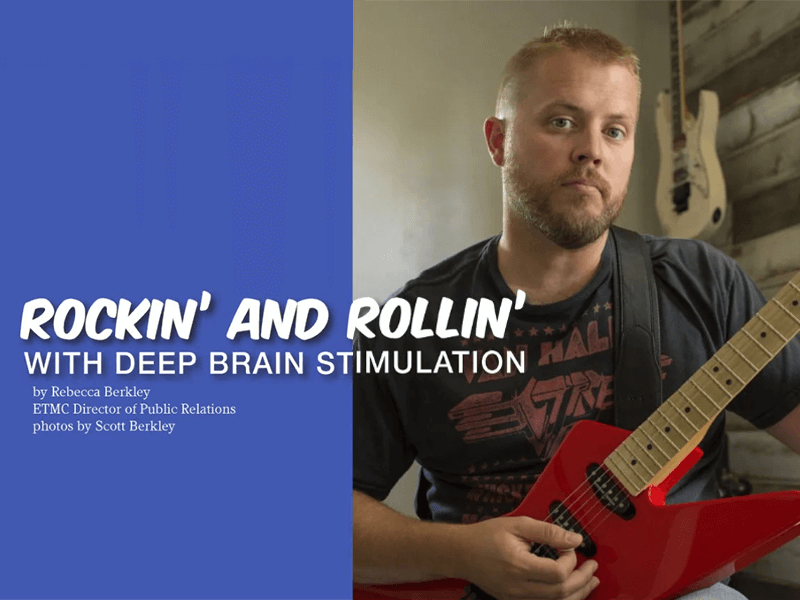Todd Glass of Tyler suffered from essential tremors since he was a child. "My mother noticed it when I was two years old," said Glass. "Hands would shake when I would wake up from a nap." He also had problems writing in school.
Glass grew up in the MTV era and loves rock music. He learned how to play the guitar, but had to compensate for his tremors. "It was annoying. I could fight my way through it; lock my arm, upper body to control it."
He's also a well-known luthier, someone who repairs and tunes guitars, but it was sometimes difficult to do the job. "A lot of solder work, little bitty screwdrivers. little bitty screws, hard to do when I had the shakes,” Glass recalled.
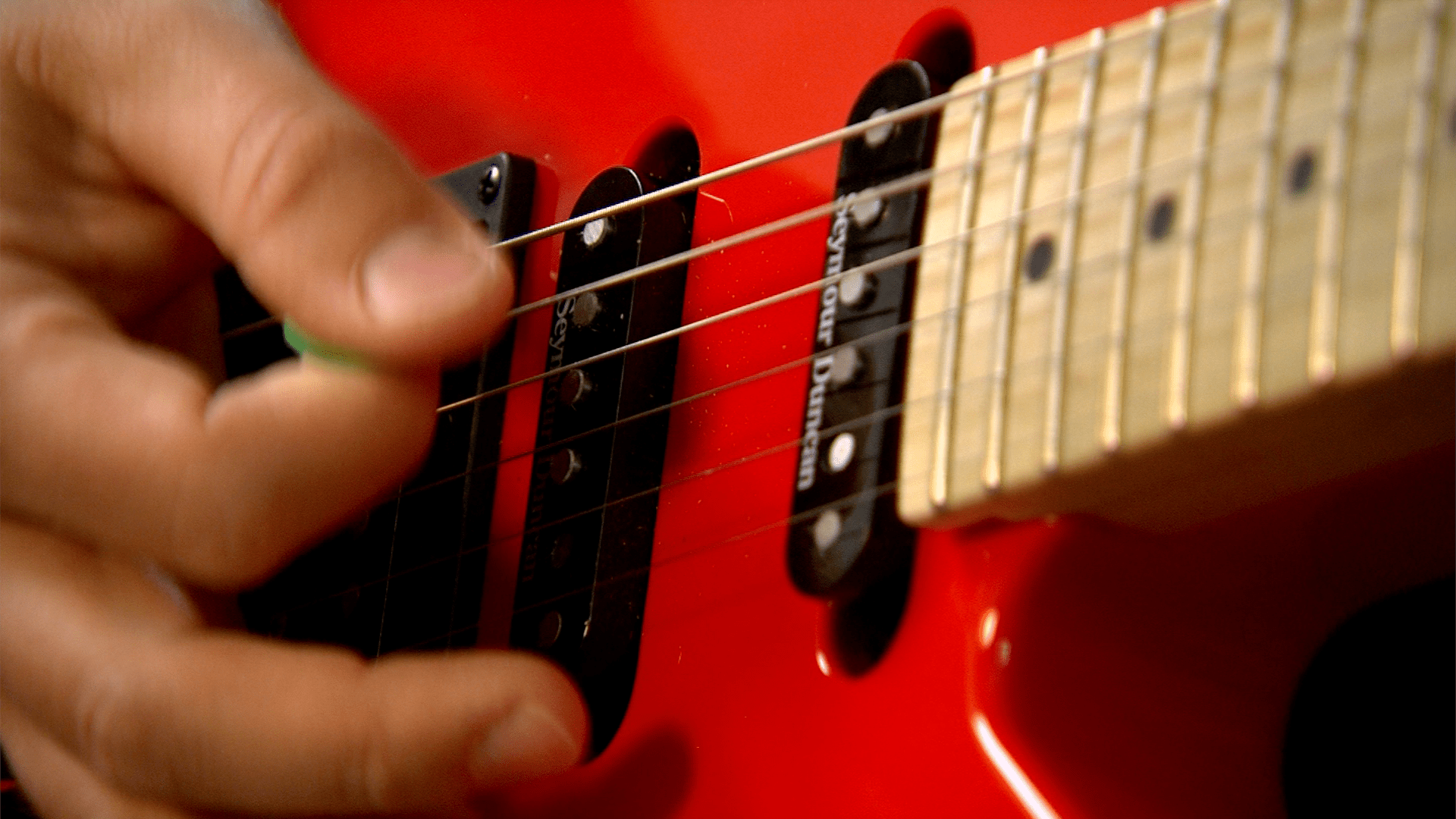
One of Glass's friends, and fellow musician, is Tyler neurosurgeon Dr. Paul Detwiler. "He was over at my house, we were playing guitar and he saw me shaking and said, 'I can fix that for you, and it kind of went from there," Glass said.
Dr Detwiler says Glass had accepted his deficit and that he was going to have the tremors for the rest of his life. "Then I came along and told him I could make those go away. I don't think he believed me at first."
Dr. George Plotkin, medical director of the ETMC Movement Disorders Center, met with Glass and discussed deep brain stimulation or DBS. The procedure targets areas in the brain that control movement and is used for patients with essential tremor or Parkinson's disease.
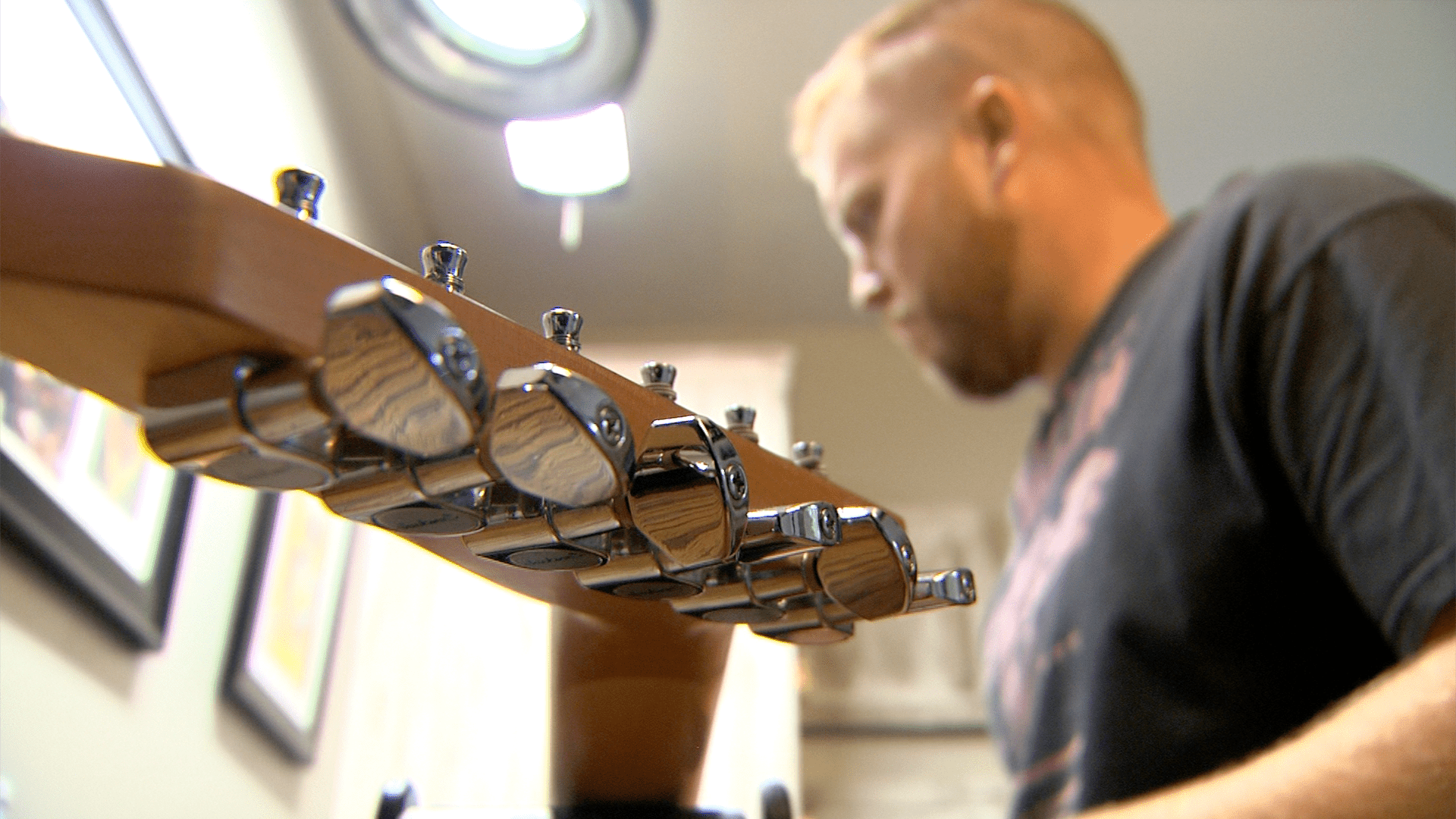
"DBS involves surgically implanting electrodes in specific areas of the brain responsible for movement," said Dr: Plotkin. "These electrodes are wired to a stimulator, a pacemaker-like device that is implanted in the upper chest or abdomen. When turned on, the stimulator sends electrical pulses to block the faulty nerve signals causing tremors, rigidity and other symptoms." Stimulator settings can be adjusted in an office setting without further surgery."
"Todd was struggling to do anything. He was the ideal candidate for DBS." added Dr. Plotkin. "He had a strong family history and was a young onset patient. The tremors were severely disabling for his hobbies and career."
Essential tremor affects between 7-10 million Americans, making it the most common of the movement disorders. Glass made the decision to have the surgery. During the procedure, the patient is awake, so the team can calibrate the adjustments. Typically the patient is given a coffee mug to hold to see if the tremors can be controlled, but in Glass's case, they decided to do something different.
"We brought into the surgical suite his guitar and had him start playing it before we did anything," said Dr. Detwiler. "I thought the guitar was going to fly off the table as Todd was shaking so bad, and then we put in the electrodes. He was able to play something he hadn't played in a long time. We were all in a state of disbelief."
"The anesthesiologist's jaw dropped, most of us in the room wanted to hold up a match and say more, but we were busy doing our surgery," said Dr. Plotkin. "It worked immediately and was a very impressive result.""The anesthesiologist's jaw dropped, most of us in the room wanted to hold up a match and say more, but we were busy doing our surgery," said Dr. Plotkin. "It worked immediately and was a very impressive result."
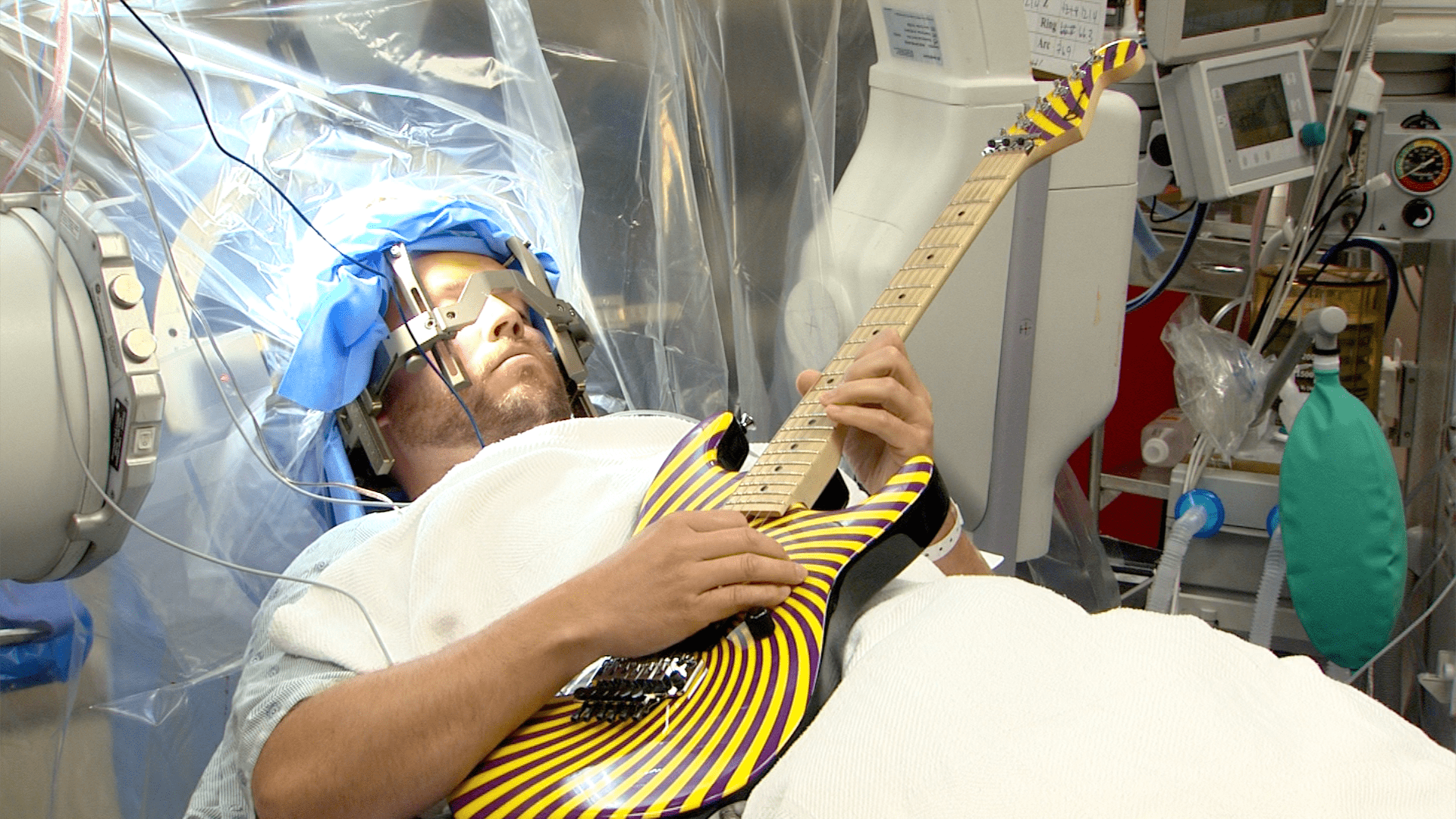
Glass says he doesn't know how to explain what happened that day except to say, "It was amazing!"
Several months later Glass was rocking out in his home studio and learning to play one of his favorite songs called "Crazy Train" by Ozzy Osborne. "If I need to do anything with my hands. I got it covered. I don't have any fear of going somewhere and embarrassing myself. I'm a superintendent for a construction company and now I can work on things, swing a hammer, everything is totally different."
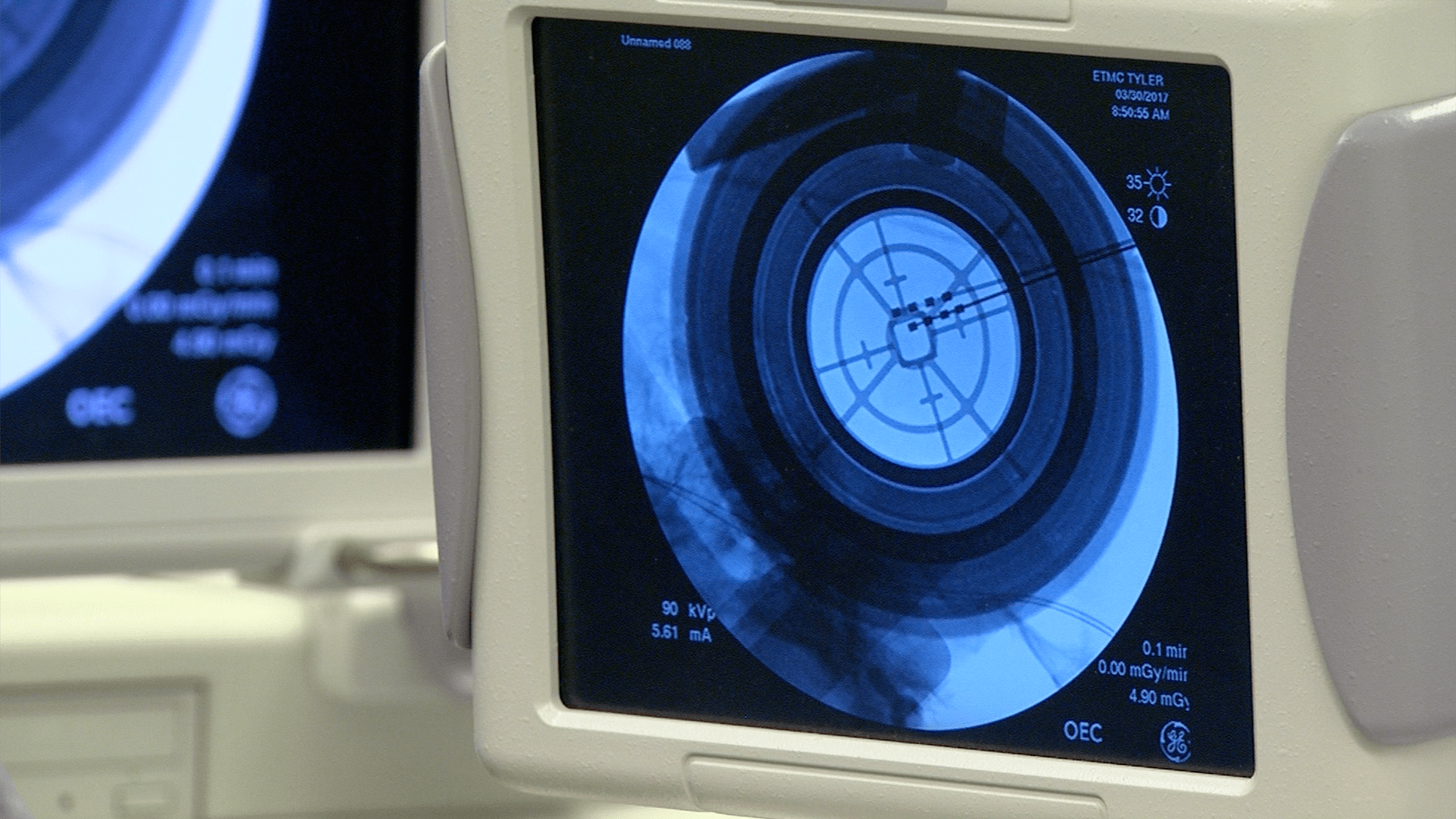
"In the end, he made a decision and never looked back." said Dr. Detwiler "This has been a huge life-changer for him. He called me to complain that he had to relearn how to play golf now that he doesn't have tremors. In the past, he had to position himself in a way to prepare for a tremor and work around it and now that problem is gone."
Glass says he would definitely encourage anyone who has tremors to see if they are a candidate for DBS. "It's definitely worth it."

